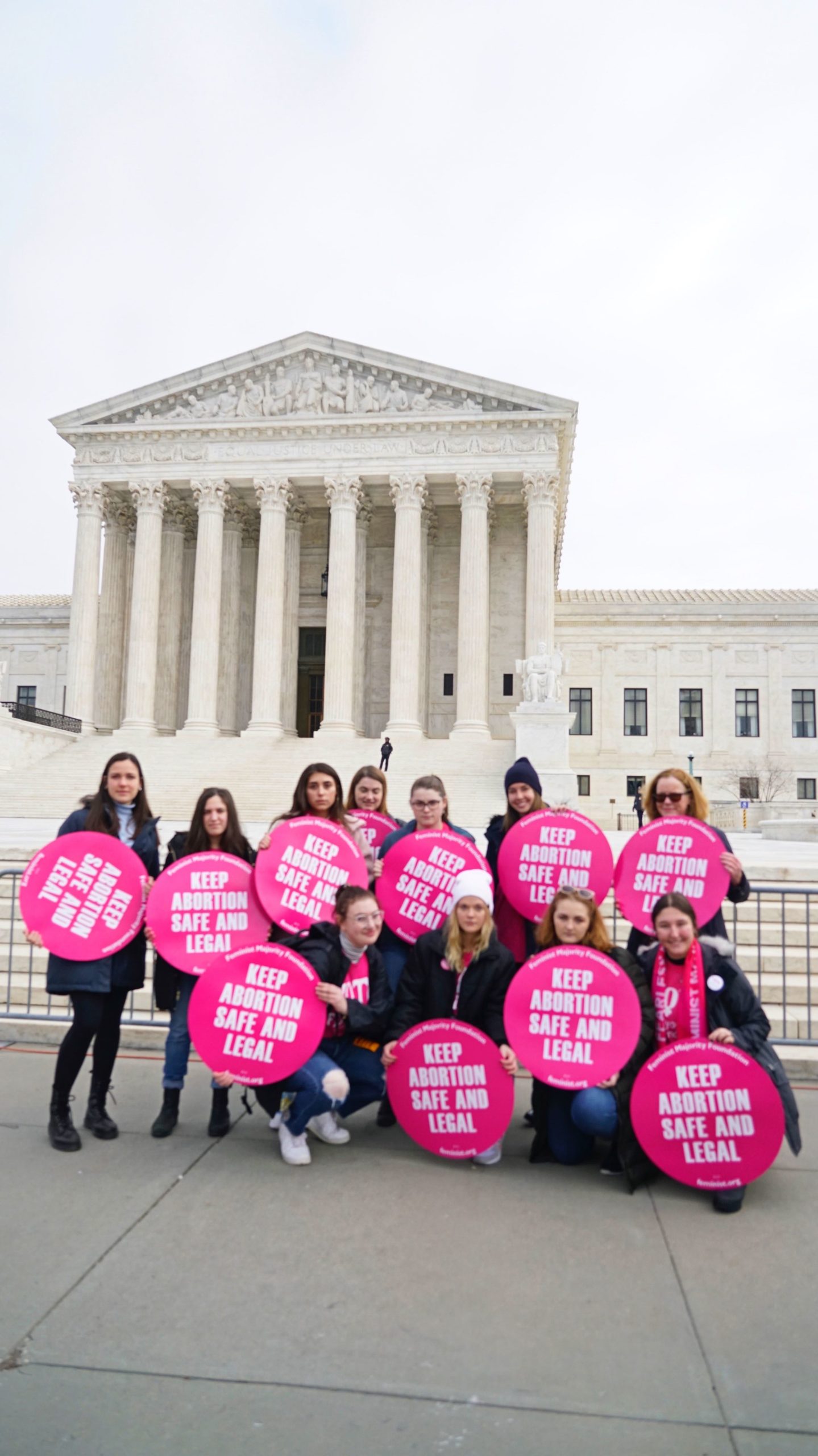Thousands of marchers walked past us, carrying signs with messages like “Abortion kills,” and “Impeach Roe,” as we wielded our bright pink “Keep Abortion Safe and Legal” rounds. Many of these anti-choice demonstrators were incredibly angry at us for daring to counter-protest their march: as their signs indicated, they all view abortion as wrong, unsafe, or even “tools of the patriarchy”–ha!
“Pro-life is pro-woman!” they chanted/yelled at us. Respectfully, I must disagree–forcing a woman to have a baby she does not want can never be labelled as “pro-woman”. However, it is unsurprising that the theme of this year’s March for Life was “Life Empowers: Pro-Life is Pro-Woman.” The 2020 March for Life weaponized feminist suffrage leaders Elizabeth Cady Stanton, Susan B. Anthony, and Alice Paul for its anti-abortion messaging, making claims that these suffragists believed that “mothers and babies were not at odds with each other,” and that “early American feminists condemned abortion ‘in no uncertain terms.’”
However, Tracy Thomas, Associate Dean at the University of Akron School of Law, has done extensive research on claims like these, which came about in the 90’s in an effort to create a foundation for a historically “supported” anti-abortion movement. Thomas’ findings disprove the anti-abortion movement’s claims, instead unearthing Stanton’s true beliefs: she was an advocate for women’s reproductive choice and voluntary motherhood, being the only choice women had during the time period. Stanton’s work and support for women’s reproductive autonomy was in fact a “precursor to the modern pro-choice movement.”
Thomas’ research also touches on Anthony’s beliefs, primarily finding via prominent historians that “Anthony spent no time on the politics of abortion. It was of no interest to her, despite living in a society (and a family) where women aborted unwanted pregnancies.” She further concludes that “the few feminist voices joining the periphery of the abortion debate did not support the regulation of abortion. Instead, these writers defended women against the anti-abortion campaign’s attack and shifted the moral blame to men and to society’s oppression of women.”
It’s clear with the current political climate, where gender equality is equated with reproductive choice, that abortion opponents are acknowledging the need to cast their movement in a light of women’s empowerment. In order to do so, they have posthumously crafted unsubstantiated endorsements of the March for Life by prominent suffragists. While historical revisionism is not something new to us in 2020, we are continually witnessing conservative entities co-opting feminist narratives and talking points and rewriting history in order to push for, in most cases, the elimination of abortion rights. Apparently the March for Life did not get the memo that they cannot simply claim whichever historical figure they choose, regardless of ideology; perhaps next time, they will be more careful about claiming actual feminists as their own.

